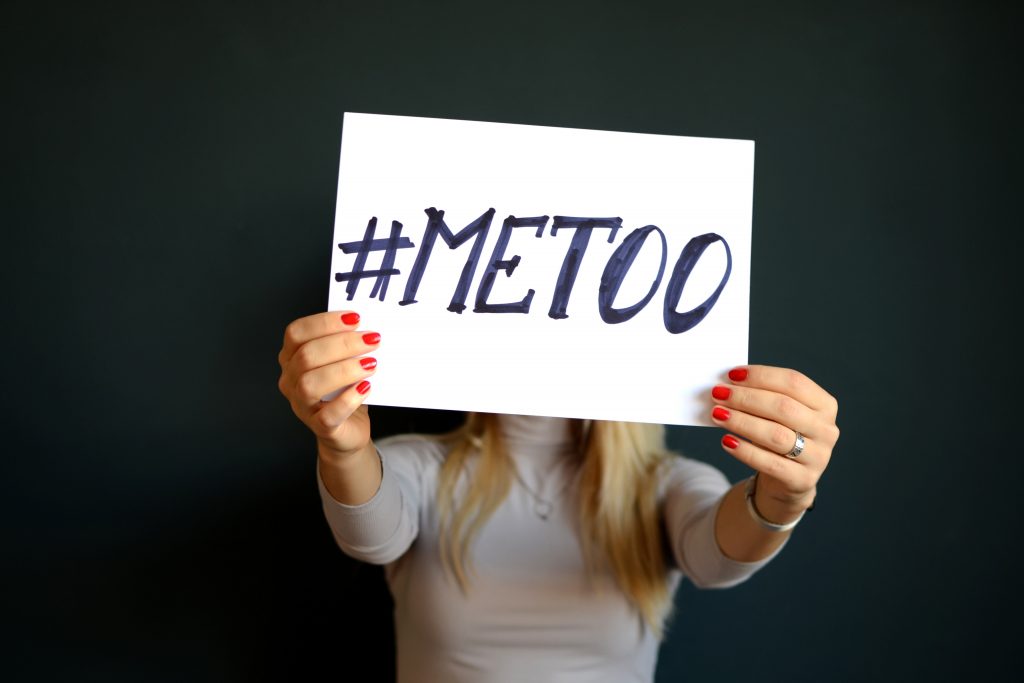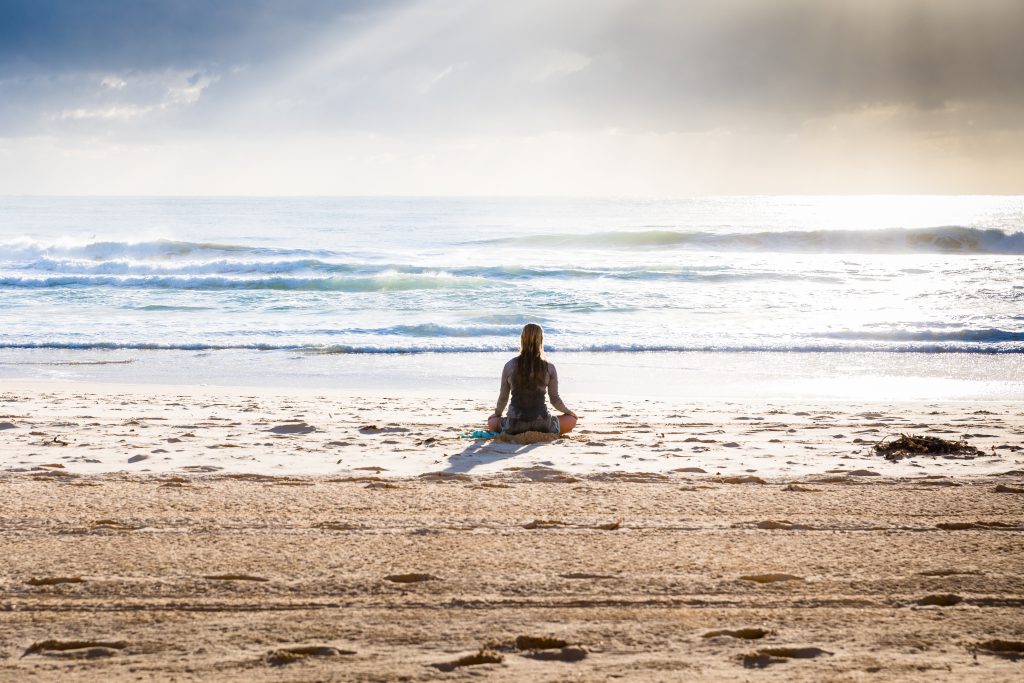Everyone in this world goes through hardship and adversity at one point or another in their life. From the loss of a loved one to failing at something we were hoping to succeed in, it is an inevitable. And although being assaulted would likely fall on the high end of the trauma spectrum, survivors would likely ponder the metaphysical question: Was this also an inescapable reality?
We must all understand though that no one deserves to be physically or emotionally abused and, as a victim, you should not feel responsible. The shame and guilt is the perpetrator’s to bear and not your own.
Ultimately however, the inconceivable measures of pain inflicted by such a traumatic experience may cause us to question our own self-worth. When we are at the lowest point in our lives, it can be easy to attribute our victimisation to our own personal failings (also known as victim-blaming).[1] For others, it may be easier to act as though nothing has happened and to merely repress the memory of their experience. However, as Sigmund Freud’s theory of psychoanalysis postulates, this state of dissociation created by repression can still unconsciously drive our conscious behaviours and manner of thinking. [2]
The psychological and physical effects of dismissing the assault can thus be profound, ranging from depression and loss of social relationships to poor health and eating disorders. [3] This is why employing multiple, active coping mechanisms to alleviate that suffering can prevent spiralling into a dark abyss.
Having supported a few friends myself who have been assaulted, it is actually staggering to think how common it may be amongst our own friends and family. Each year about one in five Australians will experience a mental illness. [4] Of those one in five, it would be reasonable to infer that assault or abuse plays a role in the mental illness of many Australians. But while it is no secret that this issue is prevalent, it is how victims can deal with its by-product consequences that poses the real challenge. As sexual assault survivor, Gabrielle Union rightly asserts, the onus should not be on the victim to remedy their circumstances and there is no right way to deal with trauma. [5] However, after speaking with a number of victims and through my own life experiences, I have found these nine strategies to be beneficial and hope that by sharing them, they may be of help to those who are struggling.
1. Bring your perpetrator to justice
No doubt, preparing to confront your attacker and bringing them to justice will be difficult, particularly with court systems that seem to re-traumatise survivors. It may, however, be effective in bringing about closure and a way to take your ‘control’ back. Even knowing that the person who has caused you so much pain can never again hurt you or someone else could be the catalyst in your recovery.
2. Get counselling
Opening up to a counselor about assault is challenging for many people. Certain groups, such as men or some cultural communities, may be discouraged from seeking help due to gender and cultural norms that still permeate in our society. Due to the high level of stigmatisation, certain cultures such as those from Asian backgrounds may still discourage and condemn people from seeking psychological help.[6] Nonetheless, without prompt and adequate treatment, there is a high likelihood that the trauma will manifest long-term effects on your psychological health.[7] There are also a number of support services nationally to help you begin the recovery process such as KidsHelpline, Domestic Violence Resource Centre Victoria (DVRCV), beyondblue, or your local Centre Against Sexual Assault (CASA). Please refer to our support page for contact details.
3. Share your story
As humans, we all have an inherent tendency to avoid exposing our vulnerabilities. However, being open about our experiences could potentially allow us to reclaim our narrative and sense of self, whilst encouraging other victims to share their stories. Movements such as #MeToo have empowered many by opening the conversation about sexual assault and by allowing victims to identify with others who have similar circumstances.

4. Lean on your support networks
It is important to know that we are never alone. All we need to do is ask for help. As your family and friends would form the very fabric of your social and personal wellbeing, they may be the best people to help you rebuild what your assault destroyed.[8] In some instances, just having someone physically present with you, without necessarily sharing your story, can offer a sense of security and comfort.
5. Focus on the positives
Being abused is, of course, cannot, and never should be, viewed as a positive experience. However, it may be helpful to you to view your assault as a way of supporting others who have had the same experience. Viewing an experience of assault in such a way could engender you to reclaim your agency and overcome ‘victimhood’ (as well as the enforced helplessness that goes with that).[9] It’s positive thinking with a purpose – not just for the sake of it.
6. Develop a strong mindset
Constructing a ‘mental toughness’, so to speak, can be a useful tool in a survivor’s arsenal to overcome any issue that life throws our way. This should however not be mistaken for portraying a façade that you are mentally sound. When it comes to the point that you yourself know that you are not actually okay, you should acknowledge that and seek help.
7. Stay physically healthy
Studies have revealed that physical health can support mental wellbeing.[10] I know from personal experience that I feel more confident and positive, as well as physically stronger, after a solid gym session. Or, as Mel Robbins, a renowned motivational speaker and life-long anxiety sufferer, puts it, ‘when you physically move, your physiology changes, and that changes your brain’.[11]
8. Engage in meditation/yoga
Both meditation and yoga can be therapeutic ways to clear and transcend our own minds. These self-rejuvenation practices teach us to be more self-aware, become better attuned to our own senses and are just generally incredibly calming activities. Drawing upon my Buddhist teachings, I have found that channeling my inner peacefulness eases the elevation of my spirit and develops a stronger mind-body connection.

9. Understand that it is a process
Unfortunately, the memory and consequent effects of trauma do not disappear overnight, as our minds do not work like a light switch. Healing is a long, often slow process. However, it is this process that will consequently show that you are stronger than you believe, having overcome such as a horrific ordeal.
While I appreciate that some may have more resources than others to overcome whatever issue they may be facing, I strongly believe that anyone has the power to change their circumstances and re-gain control of their life. Sometimes we just need to take small steps. But even if you feel you are currently struggling with your problems, that is okay too! It is by no means an indication of your mental strength or emotional intelligence. Some people just take more time than others to overcome certain challenges. For many the sky is the limit, but to get there, our desire to move forward may dictate how far we can reach.
As Lance Armstrong has so wisely put it: ‘Pain is temporary. It may last a minute, or an hour, or a day, or a year, but eventually it will subside and something else will take its place. If I quit, however, it will last forever’. This quote resonates very closely with me, and is something I hope you can recognise if you have been, or are currently being, subject to abuse.
Sources
[1] Chris Judd, ‘Let players talk about depression without it defining them forever’ (The Age, 2017).
[2] Memories of Childhood Abuse (American Psychological Association); Gerald Corey, Theory and Practice of Counseling and Psychotherapy (Cengage Learning, Tenth ed, 2017) 61.
[3] Denise Dievore, ‘No longer Silent: A Study of Women’s help seeking Decisions and Service responses to Sexual Assault’ (A report prepared by the Australian Institute of Criminology for the Australian Government’s Office for Women, Australian Institute of Criminology) 32.
[4] ‘National Survey of Mental Health and Well-being: Summary of Results’ (2007) Catalogue No. 4326.0.0 Australian Bureau of Statistics.
[5] Gabrielle Union, We’re going to need more Wine (HarperCollins Publishers, 2017) 104.
[6] Munyi Shea and Christine Yeh, ‘Asian American Students’ Cultural Values, Stigma, and Relational Self-construal: Correlates of Attitudes Toward Professional Help Seek’ (2008) 30 (2) Journal of Mental Health Counseling 158, 167.
[7] Jill Astbury, ‘ Services for Victim/Survivors of Sexual Assault: Identifying Needs, Interventions and Provision of Services in Australia’ (2006) 6 Australian Institute of Family Studies 1, 1.
[8] Jenny Johnson, ‘Oprah: I was Raped when I was only 9’ (Irish Examiner, 2012).
[9] Lindsay Holmes, ‘6 Tricks to becoming a more Positive Thinker’ (The Huffington Post, 2014).
[10] Cathy Johnson, ‘Exercise for Mental Health: A No Brainer? (ABC Health and Wellbeing, 2014).
[11] Mel Robbins, ‘How to get through Depression or Personal Struggle and start Healing Right Now’ (Mel Robbins, 2016).

